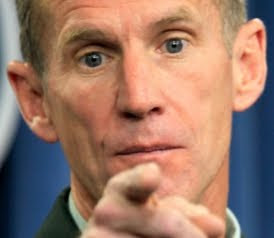Kim Jong Un
North Korea proclaimed the beginning of the Kim Jong Un era on Thursday 22 December 2011, describing him as the "successor" of the nation's revolutionary undertakings "and leader of its people." Kim Jong Un, the youngest of Kim Jong-il's three sons, holds the military rank of a four-star general, despite having little military experience and being in his late 20s. In a dispatch late Saturday 23 December 2011, the official Korean Central News Agency called General Kim the "supreme leader of the revolutionary armed forces." Earlier Saturday, KCNA hailed Mr. Kim as "supreme commander" - the first use of that title, also used by his late father. And on Monday 22 December 2011, the Communist Party's Rodong Sinmun referred to Kim Jong Un as leader of the ruling Workers' Party Central Committee, a post that gave Kim Jong Un power over one of the country's highest decision-making bodies.
On 25 June 2010 the official Korean Central News Agency reported that the Korean Workers' Party would convene a meeting in early September 2010 to elect its "highest leading body". This was generally viewed as a step toward holding a Party Congress [which had not been convened since 1980], which could herald a transfer of power designating leader Kim Jong Il's third son, Kim Jong Un, as his successor.
http://www.globalsecurity.org/military/world/dprk/kim-jong-woong.htm






Comments
Post a Comment